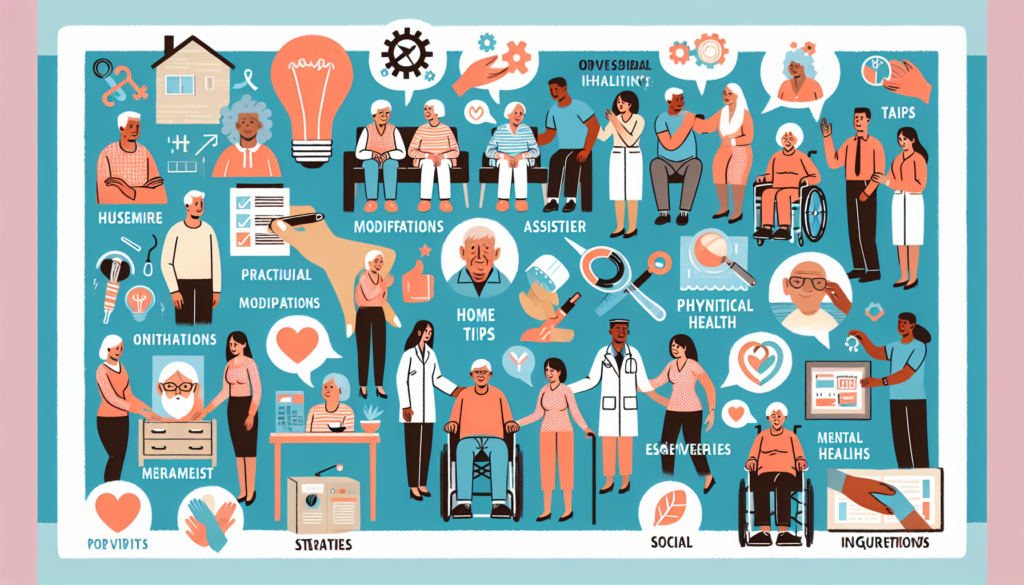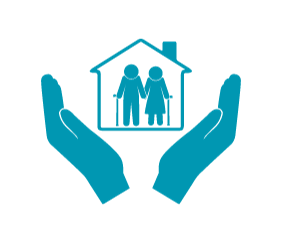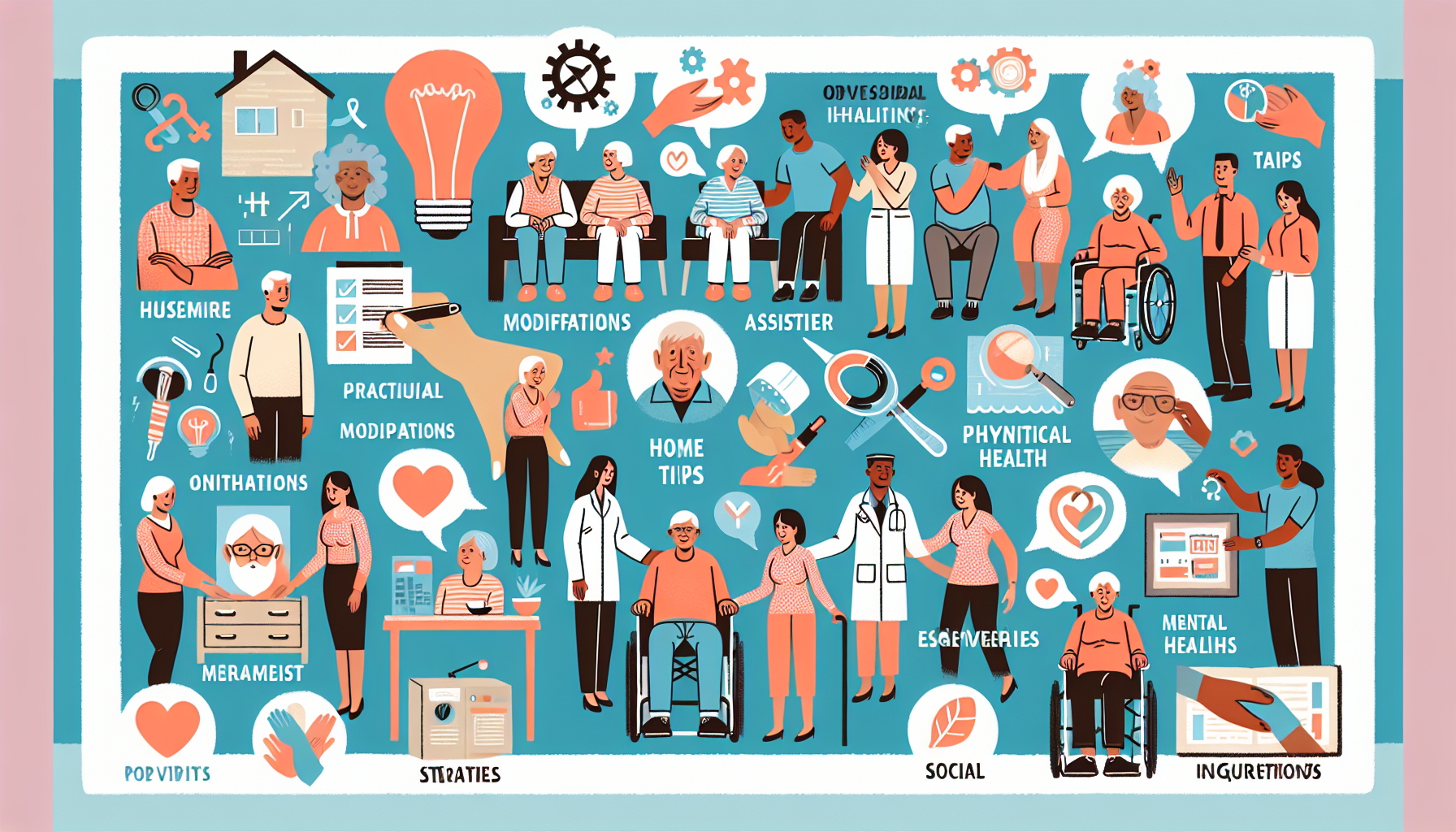As you navigate through the golden years of your life, you may find yourself wondering how to make your elderly life easier. This article aims to provide you with practical tips and advice on how to enhance your daily routine, ensure your safety and well-being, and maintain an active and fulfilling lifestyle. By implementing these suggestions, you can empower yourself to embrace the joys and challenges of aging while enjoying a higher quality of life. So, let’s explore the various ways you can make your elderly life easier and more rewarding.

Physical Health
Taking care of your physical health is essential to maintaining a high quality of life as you age. One key aspect of this is regular exercise. Engaging in physical activity helps to improve strength, flexibility, and balance, reducing the risk of falls and other injuries. Whether it’s walking, swimming, or doing yoga, find an exercise routine that suits your abilities and interests, and make it a regular part of your daily routine.
Alongside exercise, maintaining a healthy diet is equally important. Opt for a balanced diet that includes a variety of fruits, vegetables, whole grains, lean proteins, and healthy fats. Avoid processed foods and excess sugar, as they can contribute to health issues such as obesity, diabetes, and heart disease. Stay hydrated by drinking plenty of water throughout the day.
Regular check-ups with your healthcare provider are crucial for staying on top of any potential health issues. These check-ups allow for the early detection and prevention of any problems, ensuring that you receive the appropriate treatment and care. Additionally, don’t forget to take any necessary medications and supplements as prescribed by your healthcare provider.
Mental and Emotional Well-being
Taking care of your mental and emotional well-being is just as important as caring for your physical health. Engaging in social activities is a great way to stay connected with others and combat feelings of isolation or loneliness. Join clubs, organizations, or community groups that align with your interests and passions. This will provide opportunities for social interaction, friendships, and a sense of belonging.
Maintaining a positive attitude can greatly improve your overall well-being. Focus on the positive aspects of your life and practice gratitude. Surround yourself with supportive and uplifting individuals who can provide emotional support and encouragement. Additionally, practice stress management techniques such as deep breathing exercises, meditation, or engaging in hobbies and activities that you enjoy.
If you find yourself struggling with mental or emotional issues such as anxiety or depression, it may be helpful to seek therapy or counseling. A mental health professional can provide guidance, support, and tools to cope with any challenges you may face. Never hesitate to reach out for help when needed.
Daily Living Support
As you age, it’s important to recognize when you may need additional support with daily living activities. If household chores become overwhelming, consider asking for help from family, friends, or hired professionals. Delegating tasks such as cleaning, cooking, or yard work can free up your time and energy for other activities you enjoy.
If circumstances require it, you may want to explore options such as assisted living or a nursing home. These facilities provide round-the-clock care and support for older adults who may require assistance with various aspects of daily living. Be sure to research and visit different facilities to find the one that best meets your needs and preferences.
Technology can be incredibly helpful in simplifying everyday tasks. Look into home automation systems that can control lighting, temperature, and security features with just a few taps on your smartphone. Invest in devices that assist with medication management, such as pill dispensers with alarms or smartphone apps that send reminders. These technological advancements can greatly enhance your independence and make daily living easier.
Consider scheduling regular assistance for daily activities such as bathing, dressing, or meal preparation. Home care services provide trained professionals who can help with these tasks, ensuring that you can maintain your independence and quality of life.
Financial Planning
Financial stability is crucial for a secure and comfortable elderly life. Creating a budget is an essential step in managing your finances effectively. Track your income and expenses to gain a clear understanding of where your money is going. Eliminate unnecessary expenses and prioritize saving for the future.
Consulting with a financial advisor can provide valuable guidance and expertise in planning for your financial future. They can help you develop a comprehensive financial plan, choose the right investment options, and make informed decisions about your money. Take advantage of their knowledge and expertise to ensure that you are on track for a financially secure retirement.
Consider investing in long-term care insurance. This type of insurance can provide coverage for the cost of assisted living, nursing home care, or in-home care as you age. By planning ahead and securing this coverage, you can help protect your assets and ensure that you have access to the care you may need in the future.
Planning for retirement is crucial to ensure a comfortable and financially secure elderly life. Start saving for retirement as early as possible and contribute regularly to retirement accounts such as a 401(k) or an IRA. Consider working with a financial advisor to develop a retirement plan that aligns with your goals and ensures a steady income during your retirement years.
End-of-Life Planning
Though it may be uncomfortable to think about, end-of-life planning is essential for both your peace of mind and the well-being of your loved ones. Create advance directives such as a living will or durable power of attorney for healthcare, which outline your healthcare preferences and designate someone to make medical decisions on your behalf if you are unable to do so.
Creating a will or trust is crucial for ensuring that your assets are distributed according to your wishes after you pass away. Consult with an attorney to ensure that your will or trust is legally binding and comprehensive in addressing your estate.
Discussing funeral arrangements with your loved ones can alleviate the burden on them when the time comes. Pre-planning your funeral or memorial service allows you to make decisions about your final arrangements and ensures that your wishes are known.
Consider hospice care, which focuses on providing comfort and support to individuals who are nearing the end of their lives. Hospice care can be provided in a variety of settings, including your own home, and offers comprehensive medical, emotional, and spiritual support to both you and your family.
Transportation and Mobility
Maintaining independence in transportation and mobility is crucial for an active and fulfilling elderly life. Utilize public transportation options such as buses or trains, which often offer senior discounts or special services for older adults. This allows you to maintain your ability to travel independently and access community resources and activities.
If needed, consider investing in an accessible vehicle that is specially designed to accommodate individuals with mobility challenges. These vehicles are equipped with ramps or lifts, making it easier to get in and out of the vehicle with ease.
Use mobility aids such as canes, walkers, or wheelchairs to enhance your mobility and stability. These assistive devices can greatly reduce the risk of falls or injuries while allowing you to move around independently.
Arrange for transportation assistance when necessary. Reach out to family, friends, or local community organizations for support with transportation to medical appointments, social gatherings, or other events.
Caregiver Support
If you have a caregiver who supports you in daily activities, it’s important to maintain open communication. Regularly communicate your needs, preferences, and concerns with your caregiver, ensuring that they have a clear understanding of your expectations. This open dialogue fosters a supportive and collaborative relationship.
Consider respite care, which provides temporary relief for caregivers by arranging for someone else to care for you for a short period of time. This allows your caregiver to take a break, attend to personal needs, or simply recharge. Respite care services can be arranged through home care agencies or community organizations.
Join support groups for caregivers or individuals facing similar challenges. These groups provide a sense of community, understanding, and support. Share experiences, learn from others, and gain valuable resources to navigate through the complexities of caregiving.
Utilize community resources that provide assistance to both caregivers and older adults. Reach out to local government agencies, nonprofit organizations, or senior centers to explore the various resources available to support your needs.
Falls Prevention
Falls prevention is crucial for maintaining your safety and independence. Engage in exercises specifically designed to improve balance and strength, such as tai chi or yoga. With regular practice, these exercises can greatly enhance your stability and reduce the risk of falls.
Remove hazards in your home that may increase the risk of falls. Ensure that stairways are well-lit and have handrails, eliminate clutter and tripping hazards, and install grab bars in bathrooms and showers for added support.
Use mobility aids such as canes or walkers to provide additional stability when walking, particularly on uneven surfaces or in unfamiliar environments. These aids can significantly reduce the risk of falls and increase your confidence in mobility.
Wear proper footwear that is supportive, comfortable, and provides good traction. Avoid shoes with high heels or slick soles, as they can increase the risk of slipping or falling.
Maintaining Independence
Adapting your home for independent living can greatly enhance your quality of life. Install handrails or grab bars in hallways, bathrooms, and stairways to provide added stability and support. Consider adding ramps for easier access to entryways and doorways.
Utilize technology to assist with everyday tasks. There are a variety of devices and applications available that can help with medication management, home automation, and communication. Explore options such as smartphone apps, voice-activated assistants, or smart home devices to simplify daily living.
Engage in hobbies and activities that bring you joy and fulfillment. Staying mentally and physically active is key to maintaining independence and a sense of purpose. Explore new hobbies, join clubs or organizations, or pursue lifelong passions. This not only enhances your well-being but also provides opportunities for social interaction and personal growth.
Stay mentally and physically active. Engage in activities that challenge your mind, such as puzzles, reading, or learning a new skill. Physical activity, such as walking, swimming, or gardening, not only improves physical health but also boosts mood and cognitive function.
By following these tips and incorporating them into your daily life, you can make your elderly life easier and more fulfilling. Remember that it’s never too late to start implementing positive changes, and taking care of yourself is a gift that you can give yourself at any age. Embrace the journey of aging and make the most of each day.


